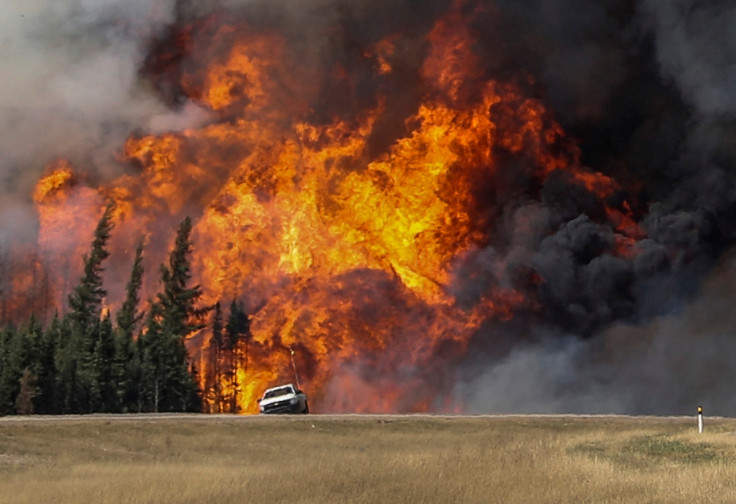Canada wildfire likely to last for months, Saskatchewan province could also be gutted

The massive Canadian wildfire in Alberta is threatening to spread into the neighbouring province of Saskatchewan as the raging blaze has doubled in size. Authorities have warned that the fire could last for several months wreaking havoc on the Canadian economy if there is no major rainfall.
What started as a wildfire accompanied by hot and dry weather in the oil town of Fort McMurray has expanded into a monster inferno scorching homes and burning down businesses . Although it is common for wildfires to rage on for months, authorities are concerned about the widespread devastation being caused by the blaze.
"In no way is this fire under control," Alberta's Premier Rachel Notley told reporters. The blaze in Fort McMurrary – the biggest among the dozens of existing wildfires in Alberta – has already forced 100,000 people to flee their homes. They are all unlikely to return to their homes anytime soon.
The government has said that the fire will cover up to 200,000 hectares (2,000km sq) by the end of Sunday, 8 May, it is expected to grow further. Extreme winds and dry conditions are hampering efforts made by hundreds of firefighters in battling the blaze. In terms of size, the fire has reached an area of as big as Hong Kong.
"The situation remains unpredictable and dangerous," Fort McMurray's Public Safety Minister Ralph Goodale told reporters.
The fire is quickly moving towards the northeast where it is threatening to push through the Saskatchewan province. It is also on course to become Canada's worst natural disaster.
"Within the community itself I expect over the next coming month or two that they're going to be able to get a very good handle on the fire situation," said Alberta wildlife prevention chief Chad Morrison.
About 500 fire personnel and more than a dozen helicopters have been deployed to contain the fire with no major success so far. About 14 air tankers have also been pressed into emergency operations.
© Copyright IBTimes 2024. All rights reserved.






